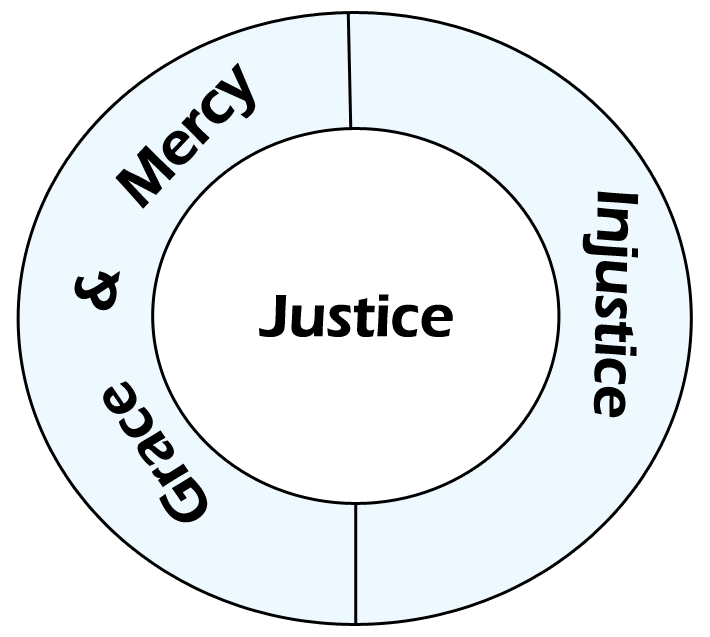...I am lifted up from the earth, will draw all people to myself.”
There is a direct parallel between John 12:31 and Rev 20:3 (also Rev 12:9) where Satan is being cast out.
Notice also the fact that because Satan is now bound, Christ will call all His people to Himself.
Therefore, it is a misreading of the text to assume the binding of Satan means rendering Satan incapable of doing anything.
The 1000 years
The next question is well, what about the 1000 years?
As all numbers in Revelation, they are to be interpreted symbolically.
10 is the number of completion, multiplied 3 times (the number of the Trinity, perfection). It is; the time where the Triune God works in Salvation History for His glory.
The 1000 years are a symbolic number of a very long time, from the Cross to the Parousia. The 1000 years is being looked on from the angle of Gospel proclamation and success, because Satan is bound we can go for the nations.
Other times we read in Revelation about 3,5 years, these are the time of persecution and they also represent the entire Era of Proclamation. Now you may, say come on. How can this be? Well, it depends from which angle we look at it. The 1000 years is great and huge number in the context of the binding of Satan and thus going for the nations. Gospel success.
But the 3,5 years are the time of persecution. 3,5 is a broken seven. 7 is the number of completeness and perfection. 3,5 is imperfect time of the persecution from the world. 3,5 years is also how long the Woman is to be nourished, time reminds us of Elisha when he in the wilderness in utter dependence on God (James 5:17; 1Kings 18). It also reminds us of the Jewish persecution in the time of the Maccabees and Antiochus Epiphanes IV.
Both 3,5 and 1000 years represent the Church Era, but it depends from which angle we look at it. If we look at it from the angle of persecution, it seems of imperfect and incomplete. But if we look at the 1000 years in the context of Satan’s binding it seems so huge and assures us of Gospel success. Let us not forget that many, if not all the disciples expected our Lord to return soon. 1000 is a huge number.
The First Resurrection
There are two possible explanations for this. It is either regeneration or the entrance of the saints to heaven (Dean’s view). I favor the regeneration view because it has direct statements from Scripture and especially from John to confirm this, but I still have some questions which the “entrance to heaven” view answers. I’m challenged by Dean’s view, it seems indeed to fit. [Edit: as of 25-04-2015 I have changed my view of the first resurrection to Dean’s. I believe the first resurrection refers to the believers’ entrance into the Intermediate State.]
Dean’s view say that the first resurrection is not a physical resurrection, indeed the consistent teaching of the NT is that of one general resurrection at the Parousia. The first resurrection refers to the believers’ entrance to heaven and reigning there with Christ.
There are two groups who are reigning with Christ:
- The martyrs
- the souls of those who had been beheaded for the testimony of Jesus and for the word of God
- Born again believers
- those who had not worshiped the beast or its image and had not received its mark on their foreheads or their hands
The regeneration view sees support in John 5.
John 5:25 “Truly, truly, I say to you, an hour is coming, and is now here, whe...






